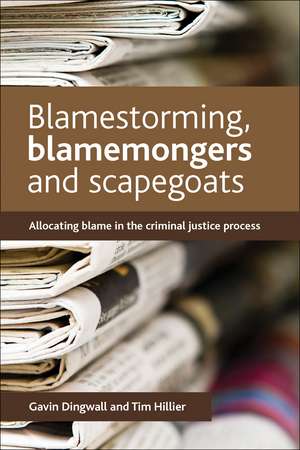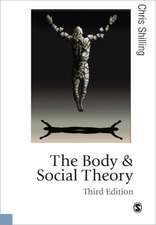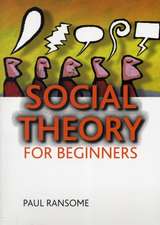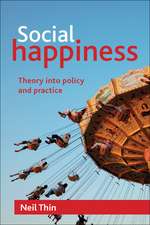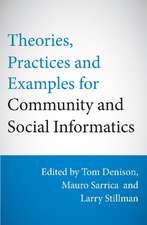Blamestorming, Blamemongers and Scapegoats: Allocating Blame in the Criminal Justice Process
Autor Gavin Dingwall, Tim Hillieren Limba Engleză Paperback – 19 iul 2016
We live in a society that is increasingly preoccupied with allocating blame: when something goes wrong, someone must be to blame. Bringing together philosophical, psychological, and sociological accounts of blame, this is the first detailed study of blame to approach the phenomenon from a criminological perspective. Gavin Dingwall and Tim Hillier present a novel take on the legal process of blame attribution, set in the context of criminalization as a social and political process. This timely and topical book will be essential reading for anyone working or researching in the criminal justice field and will also be of wider interest to anyone wishing to understand the growing role of blame in modern society.
| Toate formatele și edițiile | Preț | Express |
|---|---|---|
| Paperback (1) | 372.04 lei 43-57 zile | |
| Bristol University Press – 19 iul 2016 | 372.04 lei 43-57 zile | |
| Hardback (1) | 774.98 lei 43-57 zile | |
| Bristol University Press – 28 ian 2015 | 774.98 lei 43-57 zile |
Preț: 372.04 lei
Nou
Puncte Express: 558
Preț estimativ în valută:
71.19€ • 74.53$ • 58.90£
71.19€ • 74.53$ • 58.90£
Carte tipărită la comandă
Livrare economică 07-21 aprilie
Preluare comenzi: 021 569.72.76
Specificații
ISBN-13: 9781447304999
ISBN-10: 1447304993
Pagini: 224
Dimensiuni: 152 x 229 x 13 mm
Greutate: 0.23 kg
Editura: Bristol University Press
Colecția Policy Press
ISBN-10: 1447304993
Pagini: 224
Dimensiuni: 152 x 229 x 13 mm
Greutate: 0.23 kg
Editura: Bristol University Press
Colecția Policy Press
Notă biografică
Gavin Dingwall is professor of criminal justice policy at De Montfort University in Leicester, UK. Tim Hillier is associate head of De Montfort Law School.
Cuprins
Introduction and the centrality of blame
Blame in the criminal justice process
Blame and the blameless
Blameless crime
Blame amplification
Putting oneself in harm’s way
Blame, punitiveness and criminalisation
Blamestorming and blamemongers
Blame in the criminal justice process
Blame and the blameless
Blameless crime
Blame amplification
Putting oneself in harm’s way
Blame, punitiveness and criminalisation
Blamestorming and blamemongers
Recenzii
“Blame, and its relation to criminalization, have been neglected in criminal justice studies. Drawing on legal philosophy, this book puts them firmly under the spotlight of a thorough multidisciplinary interrogation.”
“Raises more questions than it answers . . . in scoping a relatively new area of inquiry. It is a very welcome addition.”
“A much-needed critical review of the role and parameters of ‘blame’ within criminal regulation. Accessibly written and insightful in its analyses throughout, this book compels a reevaluation of our attributions and tactics of blaming in twenty-first-century criminal justice policy.”
